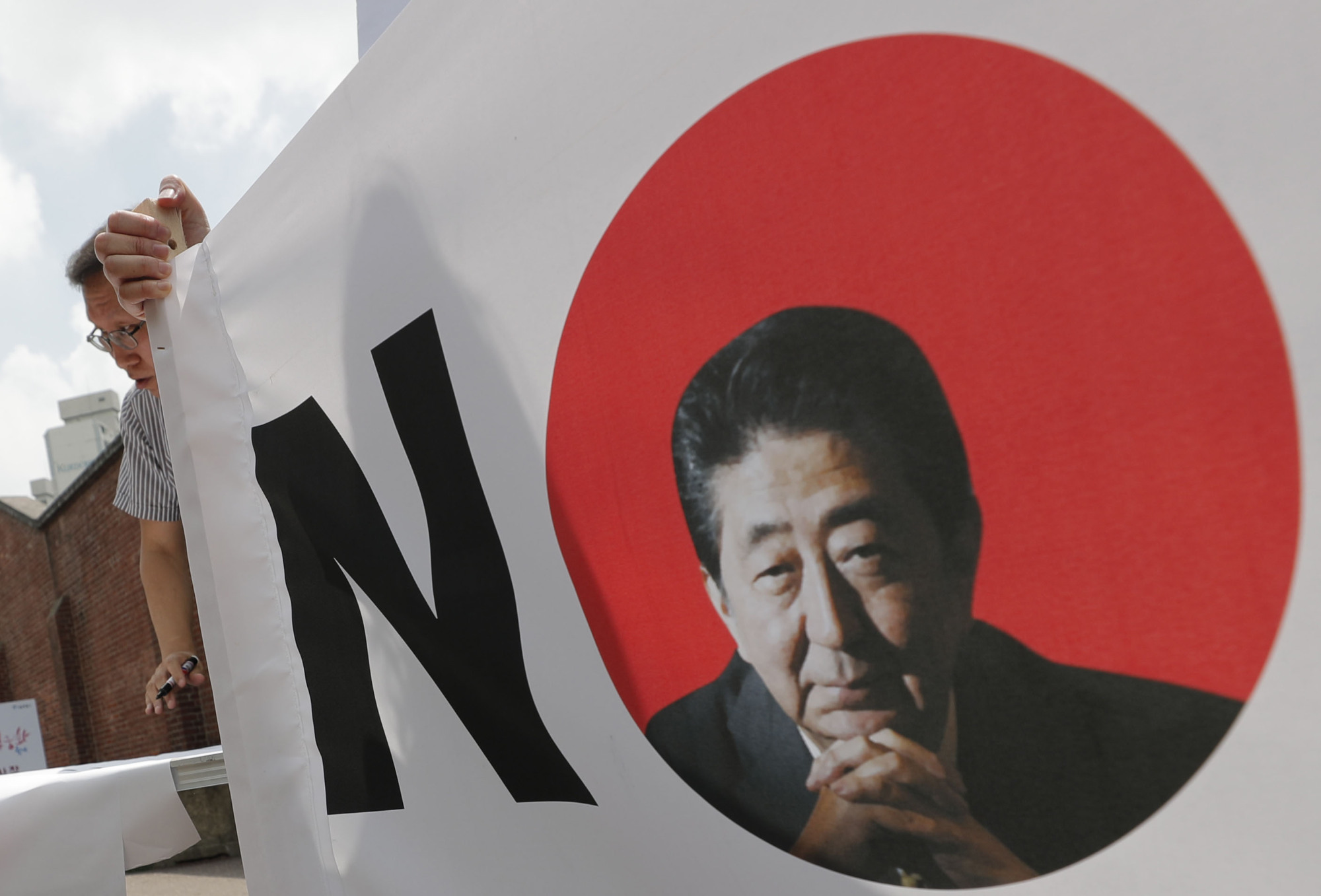When Yohei Kono made a landmark 1993 apology to the wartime "comfort women," the chief Cabinet secretary was speaking for a moderate conservative mainstream seeking to reconcile with its Asian neighbors.
The term is Japan's euphemism for those who provided sex, including those against their will, for Imperial Japanese troops before and during World War II. Many were Koreans.
A quarter century later, Kono's son, Taro, now foreign minister, is on the front lines of Prime Minister Shinzo Abe's escalating feud over compensation for Koreans who were forced to work in wartime Japanese mines and factories, an unresolved legacy of the two countries' bitter past.



















With your current subscription plan you can comment on stories. However, before writing your first comment, please create a display name in the Profile section of your subscriber account page.